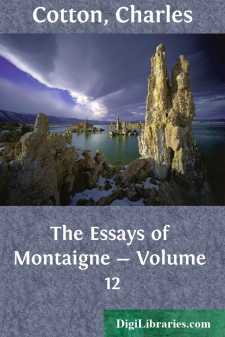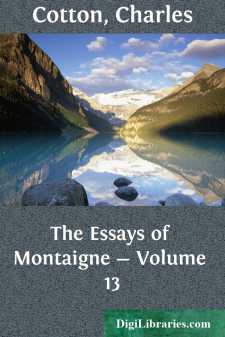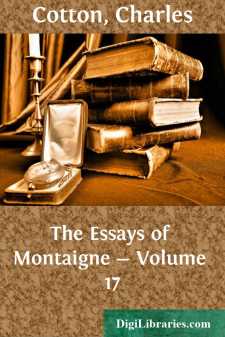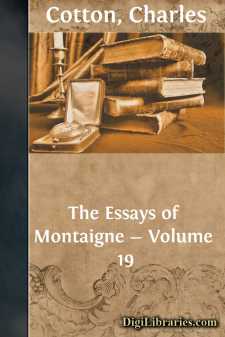Categories
- Antiques & Collectibles 13
- Architecture 36
- Art 48
- Bibles 22
- Biography & Autobiography 813
- Body, Mind & Spirit 142
- Business & Economics 28
- Children's Books 17
- Children's Fiction 14
- Computers 4
- Cooking 94
- Crafts & Hobbies 4
- Drama 346
- Education 46
- Family & Relationships 57
- Fiction 11829
- Games 19
- Gardening 17
- Health & Fitness 34
- History 1377
- House & Home 1
- Humor 147
- Juvenile Fiction 1873
- Juvenile Nonfiction 202
- Language Arts & Disciplines 88
- Law 16
- Literary Collections 686
- Literary Criticism 179
- Mathematics 13
- Medical 41
- Music 40
- Nature 179
- Non-Classifiable 1768
- Performing Arts 7
- Periodicals 1453
- Philosophy 64
- Photography 2
- Poetry 896
- Political Science 203
- Psychology 42
- Reference 154
- Religion 513
- Science 126
- Self-Help 84
- Social Science 81
- Sports & Recreation 34
- Study Aids 3
- Technology & Engineering 59
- Transportation 23
- Travel 463
- True Crime 29
Sort by:
by:
Charles Cotton
When we judge of another's assurance in death, which, without doubt, is the most remarkable action of human life, we are to take heed of one thing, which is that men very hardly believe themselves to have arrived to that period. Few men come to die in the opinion that it is their latest hour; and there is nothing wherein the flattery of hope more deludes us; It never ceases to whisper in our ears,...
more...
by:
Charles Cotton
Well, but some one will say to me, this design of making a man's self the subject of his writing, were indeed excusable in rare and famous men, who by their reputation had given others a curiosity to be fully informed of them. It is most true, I confess and know very well, that a mechanic will scarce lift his eyes from his work to look at an ordinary man, whereas a man will forsake his business...
more...
by:
Charles Cotton
DEFENCE OF SENECA AND PLUTARCH The familiarity I have with these two authors, and the assistance they have lent to my age and to my book, wholly compiled of what I have borrowed from them, oblige me to stand up for their honour. As to Seneca, amongst a million of little pamphlets that those of the so-called reformed religion disperse abroad for the defence of their cause (and which sometimes proceed...
more...
by:
Charles Cotton
CHAPTER I OF PROFIT AND HONESTY No man is free from speaking foolish things; but the worst on't is, when a man labours to play the fool: "Nae iste magno conatu magnas nugas dixerit." ["Truly he, with a great effort will shortly say a mighty trifle." —-Terence, Heaut., act iii., s. 4.] This does not concern me; mine slip from me with as little care as they are...
more...
by:
Charles Cotton
By how much profitable thoughts are more full and solid, by so much are they also more cumbersome and heavy: vice, death, poverty, diseases, are grave and grievous subjects. A man should have his soul instructed in the means to sustain and to contend with evils, and in the rules of living and believing well: and often rouse it up, and exercise it in this noble study; but in an ordinary soul it must be...
more...
by:
Charles Cotton
It is very easy to verify, that great authors, when they write of causes, not only make use of those they think to be the true causes, but also of those they believe not to be so, provided they have in them some beauty and invention: they speak true and usefully enough, if it be ingeniously. We cannot make ourselves sure of the supreme cause, and therefore crowd a great many together, to see if it may...
more...
by:
Charles Cotton
There is, peradventure, no more manifest vanity than to write of it so vainly. That which divinity has so divinely expressed to us—["Vanity of vanities: all is vanity."—Eccles., i. 2.]—ought to be carefully and continually meditated by men of understanding. Who does not see that I have taken a road, in which, incessantly and without labour, I shall proceed so long as there shall be ink...
more...
by:
Charles Cotton
Few things, in comparison of what commonly affect other men, move, or, to say better, possess me: for 'tis but reason they should concern a man, provided they do not possess him. I am very solicitous, both by study and argument, to enlarge this privilege of insensibility, which is in me naturally raised to a pretty degree, so that consequently I espouse and am very much moved with very few things....
more...
by:
Charles Cotton
There is no desire more natural than that of knowledge. We try all ways that can lead us to it; where reason is wanting, we therein employ experience, "Per varios usus artem experientia fecit, Exemplo monstrante viam," ["By various trials experience created art, example shewing the way."—Manilius, i. 59.]...
more...










